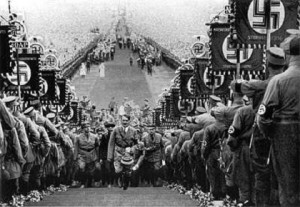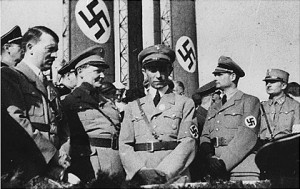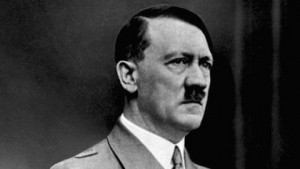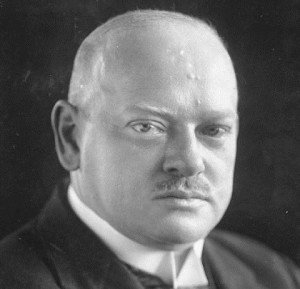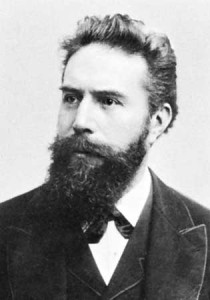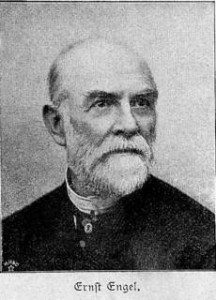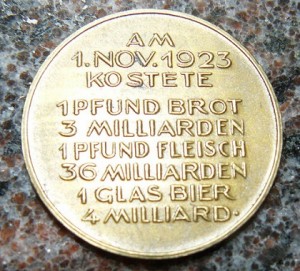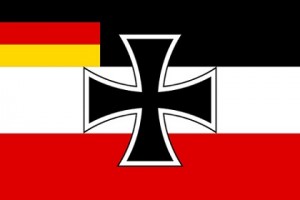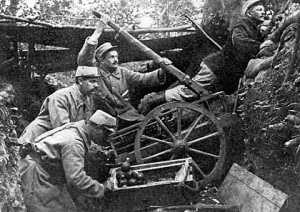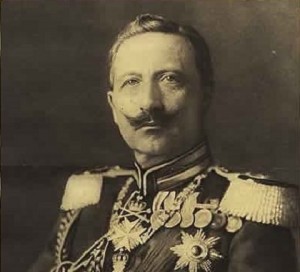Once his regime was consolidated, Hitler took little interest in domestic policy, his sole concern being that Germany become sufficiently strong to realize his long-term geopolitical goal of creating a German empire that would dominate western Europe and extend deep into Russia. In a first step toward this goal, he made a de facto revision to the … [Read more...]
The Third Reich: Consolidation of Power
Hitler rapidly transformed the Weimar Republic into a dictatorship. The National Socialists accomplished their "revolution" within months, using a combination of legal procedure, persuasion, and terror. Because the parties forming the cabinet did not have a parliamentary majority, Hindenburg called for the dissolution of the Reichstag and set March … [Read more...]
Hitler and the Rise of National Socialism
Adolf Hitler was born in the Austrian border town of Braunau am Inn in 1889. When he was seventeen, he was refused admission to the Vienna Art Academy, having been found insufficiently talented. He remained in Vienna, however, where he led a bohemian existence, acquiring an ideology based on belief in a German master race that was threatened by an … [Read more...]
The Stresemann Era in Weimar Republic
Gustav Stresemann, a German politician and statesman who served as Chancellor in 1923 (for a brief period of 102 days) and Foreign Minister 1923–1929, during the Weimar Republic. He was co-laureate of the Nobel Peace Prize in 1926. Stresemann was a Vernunftrepublikaner, that is, someone who supported the Weimar Republic because it seemed the best … [Read more...]
March 27 in German History
March 27, 1178 Death of Bl. Frowin (? - 1178) Frowin has never been formally canonized but is referred to as "blessed" by the medieval chroniclers. They also state his feast day as March 7 and attribute many miracles to him. Frowin was likely born in the Black Forest of Germany. In 1146 he was made the second abbot of the Benedictine … [Read more...]
March 26 in German History
March 26, 809 Death of St. Liudger (742-809) St. Liudger was born near Utrecht (Modern Holland) in about 742. He was a missionary to the Friesians and Saxons. His vocation was occasioned by the Martyrdom of St. Boniface whose work he wished to continue. He studied under Alquin and retained a lifelong association with him. He was ordained a … [Read more...]
Problems of Parliamentary Politics in The Weimar Republic
The Weimar Republic was beset with serious problems from the outset that led many Germans either to withhold support from the new parliamentary democracy or to seek actively to destroy it. The extreme left and much of the right provided the republic's most vitriolic opponents. Its supporters included the bulk of the left, represented by the SPD, … [Read more...]
The Weimar Republic, 1918-33
The Weimar Republic, proclaimed on November 9, 1918, was born in the throes of military defeat and social revolution. In January 1919, a National Assembly was elected to draft a constitution. The government, composed of members from the assembly, came to be called the Weimar coalition and included the SPD; the German Democratic Party (Deutsche … [Read more...]
Germany in World War I
Germany's leadership had hoped for a limited war between Austria-Hungary and Serbia. But because Russian forces had been mobilized in support of Serbia, the German leadership made the decision to support its ally. The Schlieffen Plan, based on the assumption that Germany would face a two-front war because of a French-Russian alliance, required a … [Read more...]
Foreign Policy in the Wilhelmine Era
Foreign policy in the Wilhelmine Era (1890-1914) turned away from Bismarck's cautious diplomacy of the 1871-90 period. It was also marked by a shrill aggressiveness. Brusque, clumsy diplomacy was backed by increased armaments production, most notably the creation of a large fleet of battleships capable of challenging the British navy. This new … [Read more...]
- « Previous Page
- 1
- …
- 106
- 107
- 108
- 109
- 110
- …
- 139
- Next Page »
